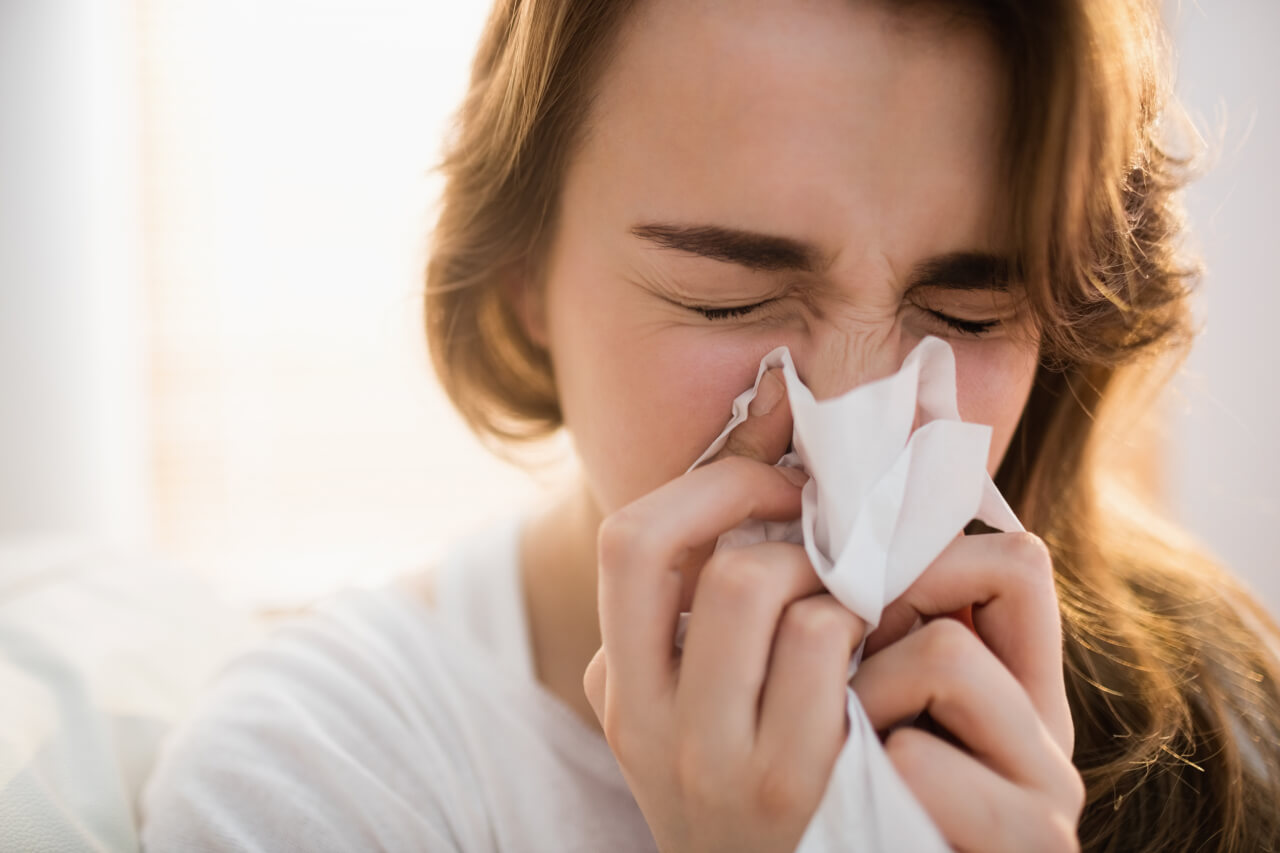Metal allergies are a common and often overlooked problem.
That can cause skin irritation, inflammation, and even systemic reactions.
If you have ever experienced itching, redness, swelling, or blisters after wearing jewelry.
Using a cellphone, or getting a tattoo, you may have a metal allergy.
Metal allergies are a type of contact dermatitis.
Which means that your skin reacts to something that touches it.
The most common metal allergies are nickel, cobalt, chromium, and gold.
But other metals such as
- mercury
- palladium
- titanium
Which can also cause allergic reactions.
Symptoms of Metal Allergies
They are caused by your immune system.
Which mistakenly identifies metal ions as foreign invaders and tries to fight them off.
This leads to inflammation and damage to your skin and sometimes other organs.
Skin Irritation
Redness, itching, and swelling at the point of contact with the metal are typical symptoms.
The skin may develop a rash, and in severe cases, it might blister or ooze.
Eczema-like Reactions
Metal allergies can mimic eczema, with dry, scaly patches of skin that may become inflamed and irritated.
Contact Dermatitis
This is a common allergic reaction where the skin becomes red, itchy, and inflamed due to contact with the allergen, in this case, metal.
Hives
Raised, itchy welts on the skin, known as hives or urticaria, can occur as part of an allergic response to metals.
Swelling
Allergic reactions to metals may cause localized or generalized swelling.
Particularly in areas where the metal is in contact with the skin.
Respiratory Symptoms
In some cases, inhaling metal particles or fumes may lead to respiratory symptoms such as:
- Coughing
- Wheezing
- Shortness of breath
Headaches and Fatigue
Allergic reactions can sometimes trigger systemic symptoms, including headaches and fatigue.
Metal allergies can develop at any age and can vary in severity.
Some people may only have mild symptoms that go away quickly.
While others may have chronic or severe reactions that require medical attention.
Metal allergies can also worsen over time.
As repeated exposure can make your immune system more sensitive and reactive.
The best way to prevent and treat metal allergies is to avoid contact with the metal that triggers your reaction.
However, this can be easier said than done.
As metal can hide out in products and devices where you least expect it.
Here are six surprising sources of metal allergens that you should be aware of:
1. Tattoo inks
If you are considering getting a tattoo and have sensitive skin, you might want to think twice.
Tattoo inks can contain various metals that can cause allergic reactions.
Especially if they are red, green, yellow, or white.
These colors often contain metals such as:
- Nickel
- Cobalt
- Chromium
- Cadmium
- Mercury
Which can leach into your skin and cause inflammation, itching, swelling, and scarring.
Tattoo allergies can occur immediately after getting inked, or they can develop months or years later.
They can also affect the entire tattoo or only certain parts of it.
The only way to get rid of a tattoo allergy is to remove the tattoo.
Which can be painful, expensive, and not always effective.
To reduce the risk of tattoo allergies.
You should always choose a reputable tattoo artist who uses sterile equipment and high-quality inks.
You should also ask about the ingredients of the ink and avoid colors that contain metals.
You should also do a patch test before getting a tattoo.
By applying a small amount of ink to a hidden area of your skin.
Wait for 24 hours to see if you have any reaction.
2. Cellphones
You probably use your cellphone every day.
But did you know that it could be causing you skin problems?
Cellphones can contain various metals, such as:
- nickel
- cobalt
- chromium
- gold
That can come into contact with your skin and cause allergic reactions.
Cellphone allergies can affect your face, ears, hands, or any other body part that touches your phone.
The symptoms can include redness, itching, burning, dryness, or blisters.
Cellphone allergies can also be aggravated by heat, sweat, or friction.
To prevent cellphone allergies, you should try to limit your phone usage or use a hands-free device.
You should also clean your phone regularly with a damp cloth and avoid using metal cases or accessories.
You can also cover your phone with a plastic or silicone case or a screen protector that blocks the metal parts.
3. Dental work
If you have metal fillings, crowns, braces, implants, or dentures.
You may be at risk of developing a metal allergy.
Dental work can contain metals such as mercury, silver, gold, palladium, nickel, cobalt, chromium, and titanium.
Which can trigger allergic reactions in your mouth or elsewhere in your body.
Dental metal allergies can cause symptoms such as mouth ulcers.
Gum inflammation, tooth pain, bad breath, metallic taste, or difficulty chewing.
They can also cause systemic reactions, such as
- Headaches
- Fatigue
- Joint Pain
- Skin Rashes
Dental metal allergies can occur soon after getting the dental work done.
Or they can develop over time as the metal corrodes or wears off.
To avoid dental metal allergies, you should inform your dentist about your metal sensitivity.
You can ask too for alternatives to metal-based dental work.
You can also opt for ceramic, composite, or resin materials.
Which are less likely to cause allergic reactions.
If you already have metal dental work and suspect that you have an allergy.
You should consult your dentist and get tested for metal sensitivity.
You may need to have your metal dental work replaced or removed.
4. Clothing
You may not think of clothing as a source of metal.
But many garments can contain metal allergens that can irritate your skin.
The most common culprits are buttons, zippers, snaps, buckles, rivets, and hooks.
Which can contain nickel, cobalt, chromium, or other metals.
Clothing metal allergies can affect any part of your body that comes into contact with the metal.
Such as your abdomen, chest, neck, wrists, or ankles.
The symptoms can include itching, redness, swelling, or blisters.
Clothing metal allergies can also be worsened by sweat, friction, or washing.
To prevent clothing metal allergies, you should avoid wearing clothes that have metal parts.
Choose clothes that have plastic or fabric-covered metal parts.
You can also cover the metal parts with tape, nail polish, or fabric.
You should also wash your clothes before wearing them.
As some fabrics can be treated with metal-based dyes or finishes.
5. Cosmetics and Soaps
If you love makeup, you may be surprised to learn that some cosmetics can contain metal allergens that can harm your skin.
Cosmetics such as eyeshadow, eyeliner, mascara, lipstick, blush, foundation, and powder.
Ican contain metals such as nickel, cobalt, chromium, and titanium.
Which may cause allergic reactions on your face or eyes.
Cosmetic metal allergies can cause symptoms such as
itching, burning, swelling, redness, or dryness of the skin or eyes.
They can also cause contact dermatitis, eczema, or eyelid dermatitis.
Which are chronic skin conditions that can flare up when exposed to metal allergens.
Cosmetic metal allergies can occur immediately after applying the makeup.
Or they can develop over time with repeated use.
To avoid cosmetic metal allergies, you should always read the labels of your makeup products.
It looks for ingredients that contain metal names or abbreviations, such as Ni, Co, Cr, or Ti.
You should also choose hypoallergenic, fragrance-free, and preservative-free products.
Which are less likely to contain metal allergens.
You should also do a patch test before using a new product.
By applying a small amount to your inner arm or behind your ear and waiting for 24 hours to see if you have any reaction.
6. Food
You may not realize it, but some foods can contain metal allergens that can trigger allergic reactions in your body.
Foods such as
- Canned foods
- Processed foods
- Seafood
- Chocolate
- Nuts
- Seeds
- Grains
- Vegetables
Which can contain metals such as nickel, cobalt, chromium, and mercury.
Which can cause oral or systemic reactions.
Food metal allergies can cause symptoms such as:
- Mouth Ulcers
- Tongue Swelling
- Throat Irritation
- Nausea and Vomiting
- Diarrhea
- Abdominal Pain
They can also cause systemic reactions, such as:
skin rashes, joint pain, or respiratory problems.
Food metal allergies can occur within minutes or hours after eating the food.
They can also develop over time with repeated exposure.
To prevent food metal allergies, you should avoid or limit foods that contain high amounts of metal allergens.
Especially if you have a history of metal sensitivity or other allergies.
You should also eat a balanced and varied diet, as some nutrients, such as vitamin C, iron, and zinc.
These can help reduce the absorption of metal allergens in your body.
8. Artificial Joints
Consider the materials used in artificial joints.
Implantable devices, including artificial joints, plates, rods, and pins, are commonly crafted from titanium.
If there’s a suspicion of a titanium allergy.
It’s advisable to discuss skin-patch testing with your dermatologist before undergoing any implant surgery.
This proactive step can help identify potential allergies and ensure a more informed decision regarding implantable devices.
Practical Tips for Managing Metal Allergies
Avoid direct contact with metals that trigger your allergy.
This may include jewelry, watches, coins, buttons, zippers, keys, tools, gadgets, and medical devices.
Choose your jewelry wisely.
Look for jewelry that is made of hypoallergenic materials, such as stainless steel, titanium, platinum, or gold.
You can also use plastic or silicone covers, tape, or coatings to protect your skin from metal exposure.
Think twice before getting a tattoo.
Tattoo ink may contain metal pigments, such as nickel, chromium, or cobalt, that can cause an allergic reaction.
If you decide to get a tattoo.
Make sure to inform your tattoo artist about your metal allergy and ask for a patch test before applying the ink.
Read the label of personal care products carefully.
Some cosmetics, hair dyes, soaps, lotions, and sunscreens may contain metal compounds, such as chromium, that can irritate your skin.
Look for products that are fragrance-free, dye-free, and metal-free.
Treat your symptoms with medication. If you have a mild reaction.
You can use over-the-counter creams, such as hydrocortisone or antihistamine, to reduce inflammation and itching.
If you have a severe reaction.
You may need prescription medication, such as steroids or immunosuppressants.
And this to control your immune system.
See an allergist or immunologist for diagnosis and treatment.
An allergist can perform a patch test to identify the specific metals that cause your allergy and provide you with a personalized treatment plan.
They can also advise you on how to avoid metal exposure and prevent future reactions.
You should also consult your doctor or an allergist if you suspect that you have a food metal allergy.
As they can perform tests and prescribe treatments to help you manage your condition.
An Overview
Metal allergies are a common and often overlooked problem that can affect your skin and your health.
By being aware of the surprising sources of metal allergens and taking steps to avoid them.
You can prevent and treat metal allergies and enjoy a more comfortable and healthy life.
FAQs
What are common symptoms of metal allergies?
Common symptoms of metal allergies include redness, itching, swelling, and rash at the contact site.
In severe cases, individuals may experience blistering or oozing skin.
Which metals are commonly associated with allergic reactions?
Metals such as:
nickel, cobalt, and chromium are commonly associated with allergic reactions.
These allergens are frequently found in jewelry, coins, and various metal alloys.
Can metal allergies affect dental health?
Yes, metal allergies can affect dental health.
Dental restorations like crowns and braces often contain nickel.
Which can lead to allergic reactions in susceptible individuals.
Are there unexpected sources of metal exposure in everyday life?
Absolutely. Surprising sources of metal exposure include everyday items like zippers.
Belt buckles, and even electronic devices.
Being aware of these sources is crucial for those with metal allergies.
How can one identify and manage metal allergies in cosmetics?
To identify and manage metal allergies in cosmetics.
Individuals should carefully read product labels.
Avoid products containing metals like nickel.
Which are commonly found in eyeshadows, eyeliners, and lip products.
Can a metal allergy develop over time?
Yes, a metal allergy can develop over time.
Prolonged and repeated exposure to metals may sensitize the immune system.
Leading to the development of an allergic reaction.
It’s important to be mindful of potential metal exposures.
Especially for individuals with sensitive skin.





